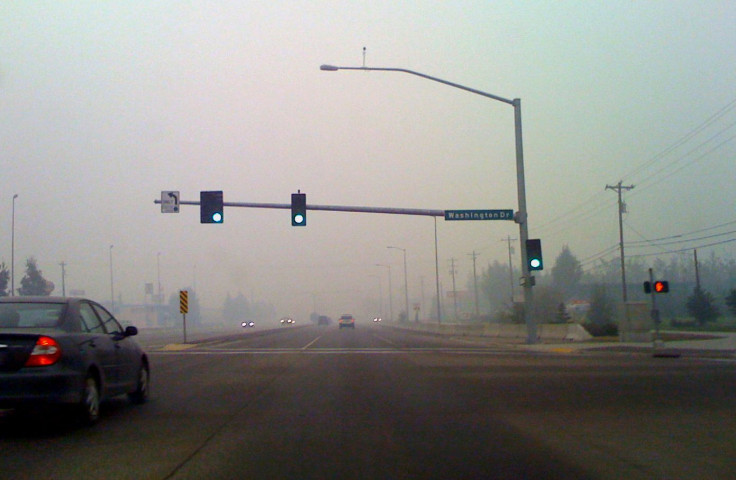How Wildfire Smoke Affects Your Health And Tips To Stay Safe
As the smoke from Canadian wildfires blows through the U.S. East Coast, millions of people are forced to stay indoors due to poor air quality alerts.
Wildfire smoke contains fine particulate matter, called PM2.5. Experts say it is ten times more harmful than the smoke from any other combustion activity and is likely to affect the health of people irrespective of their vulnerability.
"The top offender here is these fine particles. The size is really important because it can penetrate really deeply and wreak havoc on the body," Vijay Limaye, a climate and health scientist at the National Resources Defense Council, told ABC News.
The vulnerable populations, including children, the elderly, pregnant women and those with pre-existing conditions such as cardiovascular issues or respiratory illnesses, are asked to take extra caution as even short-term exposure can irritate the respiratory tracts, causing serious health hazards.
"The particulate matter that's in this haze is significant because it does irritate the bronchioles, the small tubes that go down into your lungs and connect to the alveoli, which are the sacs that allow you to breathe," Dr. Bob Lahita, a rheumatologist, told CBS News.
Although the wildfire smoke itself is not an allergen, it can cause reactions in people who have allergies to things like trees or grass. The most common symptom that immediately strikes anyone after smoke exposure, especially the vulnerable group, is breathing difficulty. Exposure to wildfire smoke even for a short time can cause symptoms such as irritation to the eyes, nose, throat and lungs, and can increase the risk of respiratory infections.
Long-term exposure can cause serious health issues such as stroke, lung cancer, asthma, preterm birth, dementia, heart disease and lower IQ in children. According to a recent study, exposure to air pollution during the first and second trimesters of pregnancy can cause gestational diabetes.
Tips to stay safe
1. Check air quality alerts regularly: You can keep a watch on the pollution in your area at AirNow.gov.
2. Stay indoors: It is better to limit outdoor activity and stay indoors while keeping the doors and windows closed.
3. Wear N95 outdoors: Avoid outdoor activities such as exercise even if you are not vulnerable as it can cause inflammation and symptoms such as headache and fatigue. If there is a need to step out, it is advisable to wear an N95 mask as they can lower the exposure to the smoke.
4. Watch out for symptoms: People with respiratory issues such as asthma should monitor their symptoms and seek help if the condition worsens. Those with breathing difficulties need to keep their inhalers and medicines ready.
5. Use air filters: Indoor air purifiers can help reduce the amount of pollutants, including small particulate matter from wildfire smoke. According to the California Environmental Protection Agency, air purifiers should be used whenever the air quality levels indicate "unhealthy" levels, or when the smoke can be seen or smelt indoors.




























